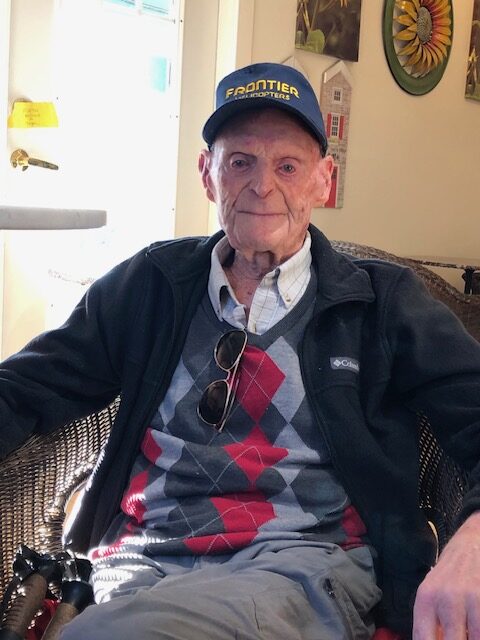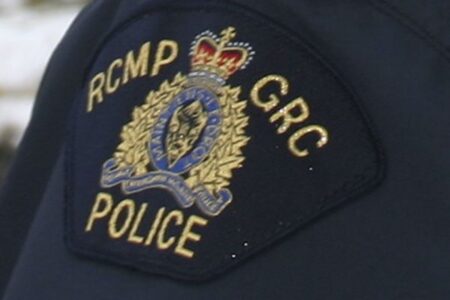An ode to a Canadian hero: 99 years old and still flying high
Ed. note: I tried to rewrite this to make it more ‘newsy’. Oh, the hubris. I should know better than to second-guess my Dad and his wife (and co-author of this article, Elaine). At any rate, it’s a super-neat story I hope you enjoy.
My late wife, Betty, and I retired to a coastal village on Vancouver Island in 2007. We often walked to a nearby strip mall and had our daily cup of coffee at a coffee bar at the back of a used furniture store where we soon met Don Payne, a World War II veteran pilot.
Don is a gregarious, youthful older gentleman, often on the verge of laughter as he observes and interacts with those around him. As we got to know him, we learned snippets about his remarkable past. Born April 11, 1925, southwest of London, Ontario, in Leamington, Don was destined for a remarkable life of achievement as an aviator, an RCAF officer, war hero, a friend, and a very interested and interesting man.
After flight training at Camp Borden, where Don earned his wings in September of 1943, he was soon posted overseas, flying Spitfires (fighter aircraft) and rocket-firing Typhoons. After choosing to continue to fight on in Europe at the completion of his tour, he was switched to flying multi-engine bombers, including the Lancaster, which proved to be his nemesis.
One day I remarked during a conversation about diet, “After about three days without food of any kind, most people stop feeling hunger”.
“That sounds about right,” Don replied.
I asked, “Have you gone without food for a while?”
“Ya,” he said, “I once parked an airplane in the North Sea and went without eating anything for about 10 days. My crew and I were adrift in a rubber dingy, and my nose was mostly detached by the impact of our plane hitting the water and my nose hitting some part of the airplane.
“Right after impact, I remember noticing that I was sinking while bubbles were going the other way. That seemed wrong. So I undid my seat belt and that got me going the same way as the bubbles. That felt better.”
As a Canadian Air Force bomber pilot, Don’s aircraft was damaged by anti-aircraft fire above Keil and was then attacked, he believes, by a ME 262. The Lancaster was coming apart.
“Doc”, as he had become known, ditched it in the ocean. He remembers waves, “like walls of water crashing down,” on him and the five surviving members of his crew. They were ultimately picked up by the a German Navy boat. One crew member, mid-upper gunner, Bert Vardi, of Bancroft, Ontario, did not survive the aircraft’s impact with the sea.
As prisoners of war, Doc and his crew were marched through several bombed towns and much war rubble on their way to, and through, much of Germany . He feels fortunate to have received excellent treatment from German surgeons and medical staff. Similarly, he felt well cared-for by his German captors but he might have been willing to forego the marching. He was then treated at the Edith Cavell Hospital in Brussels, Belgian and a Canadian hospital in England.
After his medical treatment, recovery, and demobilization, Doc re-enlisted in the RCAF in 1946.
He continued to fly aircraft and work his way up through the ranks, serving in the Korean Airlift and helping Korean, Canadian, and American civilians. For example, he and his crew para-dropped special oxygen equipment to a hospital on Baffin Island for a sick child. Doc is the recipient of the Distinguished Flying Cross from the episode of parking in the North Sea, and the Air Force Flying Cross from some of his accomplishments fighting in Korea. A more extensive enumeration of his accomplishments can be seen online at: https://www.427squadron.com/history/stories/doc_payne.html
He was later attached to the USAF Transport Service, flying through dangerous climactic conditions on the great circle route. Once, while dealing with a mechanical failure en route to Japan, Doc and his crew were forced to return 700 miles to Shemya Air Force Base in the Aleutian Islands. Each mile back risked serious air frame failure during their perilous return.
Their number three engine was revving out of control, risking propeller breakage and/or engine detachment, each threatening to bring down the airplane. Fortunately, through Doc’s excellent airmanship, the plane and crew landed safely.
After World War II Doc learned to fly helicopters and, while in Edmonton, he made 93 parachute jumps. The latter seems a very sensible precaution against further mid-air engine failures.
Doc’s peacetime service also included many administrative and piloting tasks all over the world through which he repeatedly distinguished himself during his 32 years of service in the Royal Canadian Air Force (1). For example, he hit Mach 1 in a sabre V5, in 1953, and Mach 2 in a F104, in 1963. He went on to operate a helicopter business for more than a decade after retiring from the military in 1974. Most of his post-retirement flying was done in helicopters throughout Yukon Territory and northern B.C.
Doc was also one of the team who pioneered rapid forest rappelling of forestry personnel to combat forest fires.
At his current, advanced age of 99 years and five months, Doc continues to fly for pleasure in his single engine Cherokee, although he does so with a co-pilot to continue to ensure safety for all concerned.
I have never before known a true war hero, but I think that Donald Melville Payne is vastly more than that. He is a product of the western Scottish Isle of Islay, which is closer to Ireland than to Glasgow, and a blend from the Canadian melting pot. He is truly a picture of hybrid vigor.
He still has his commercial flying license. Well, they haven’t taken it away yet, so if you hear of a flying job opening, you might let him know about the new opportunity.
Author Dr. Ronald Bain Hoggan is this editor’s father, and quite distinguished in his own right. He is also the author of many books – his first book, Dangerous Grains (he wanted to call it Cereal Killers, which was hilarious but less clear) quite literally saved lives, mine and my son’s included.


























Comments